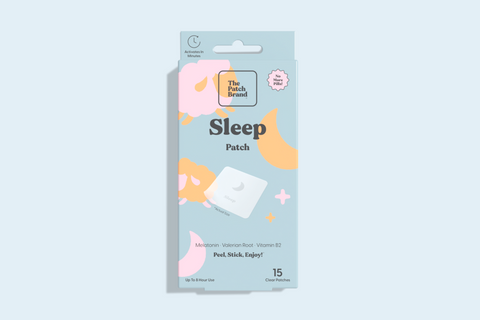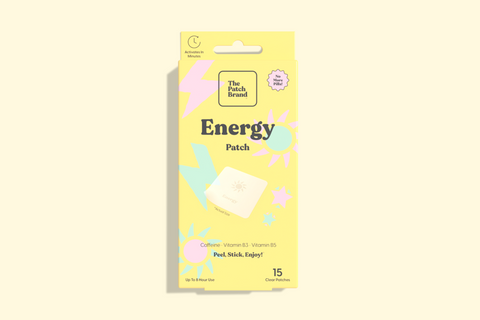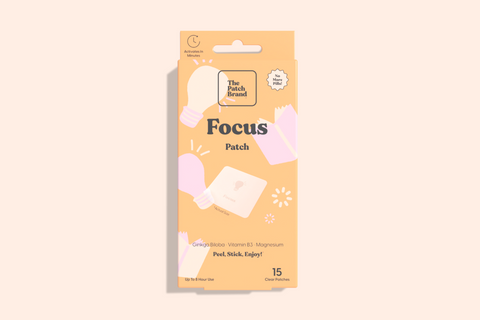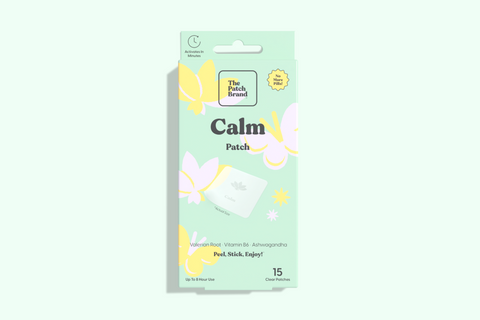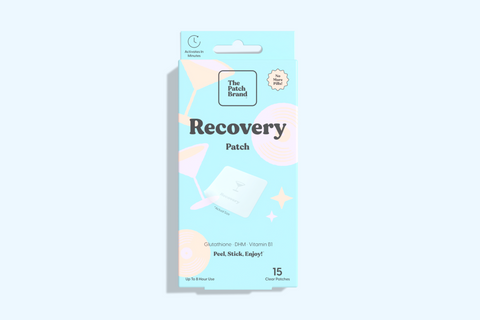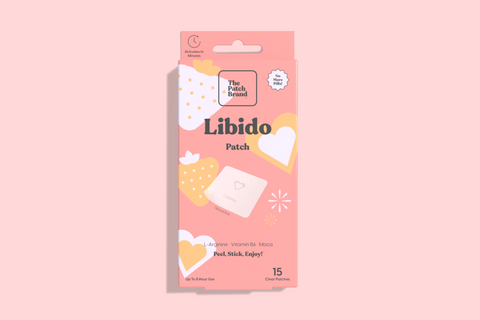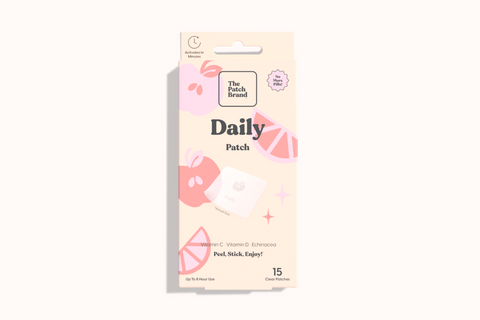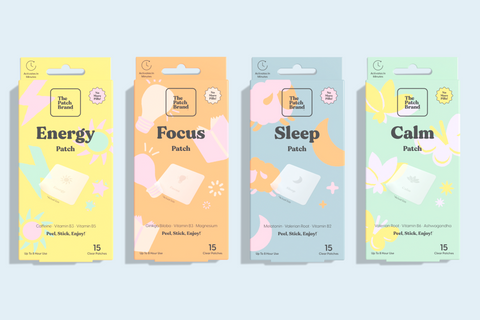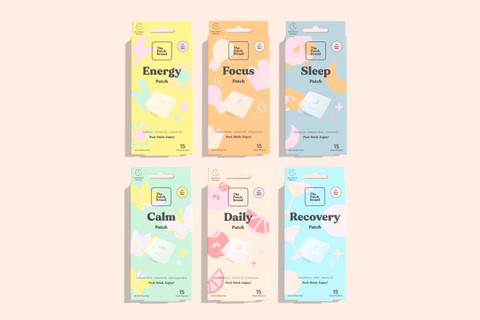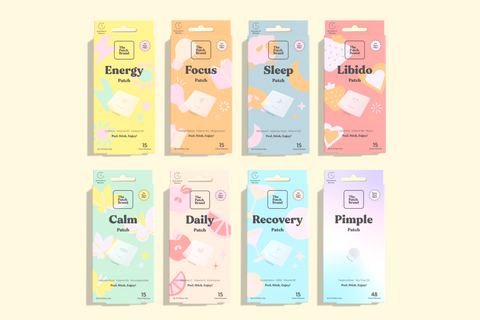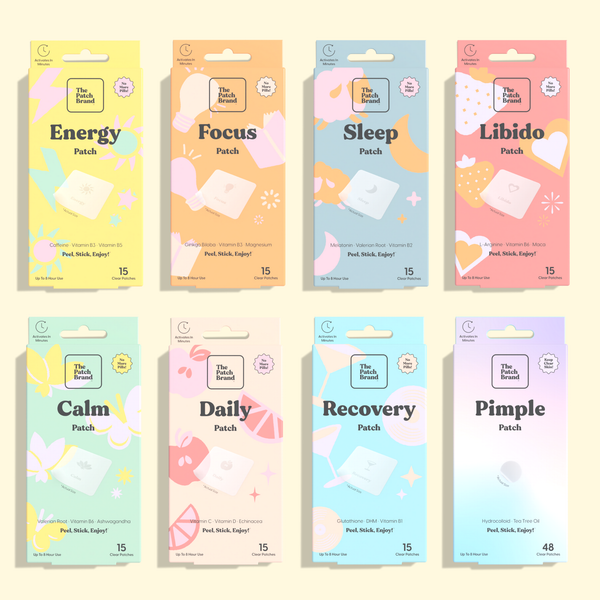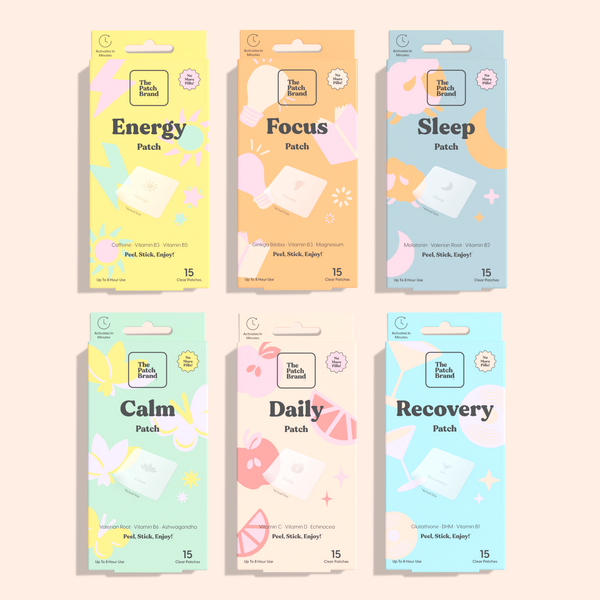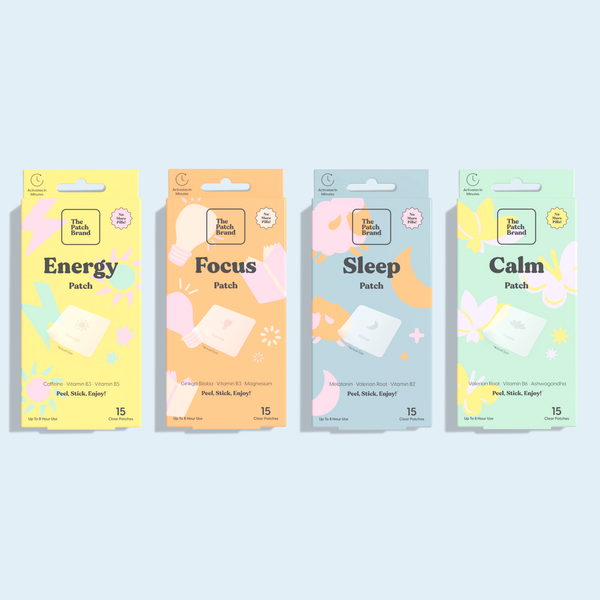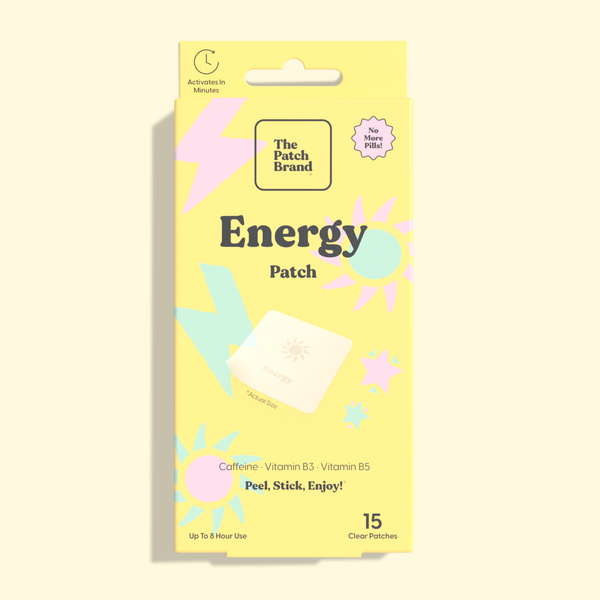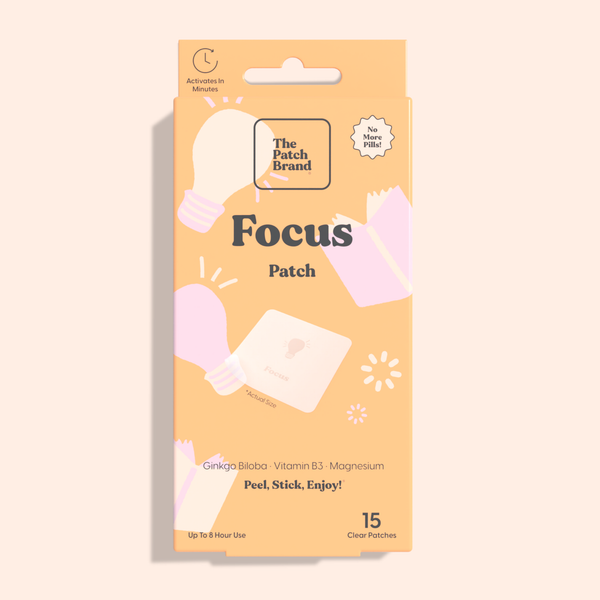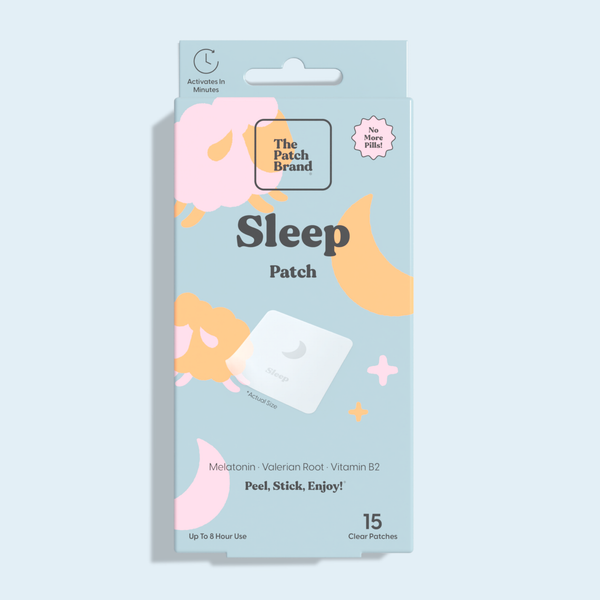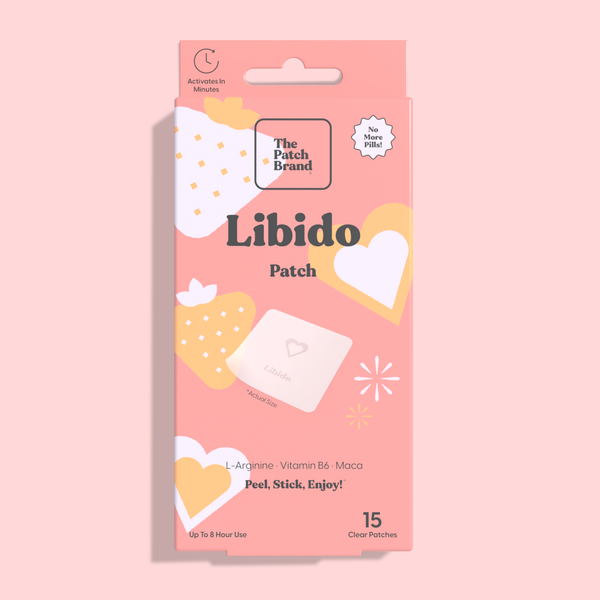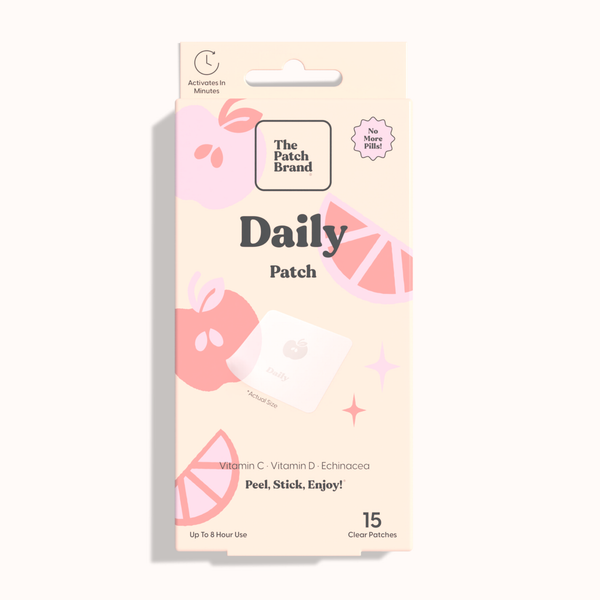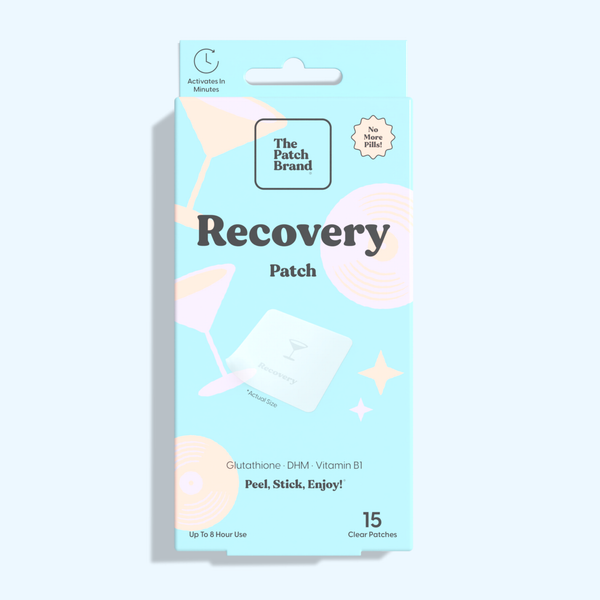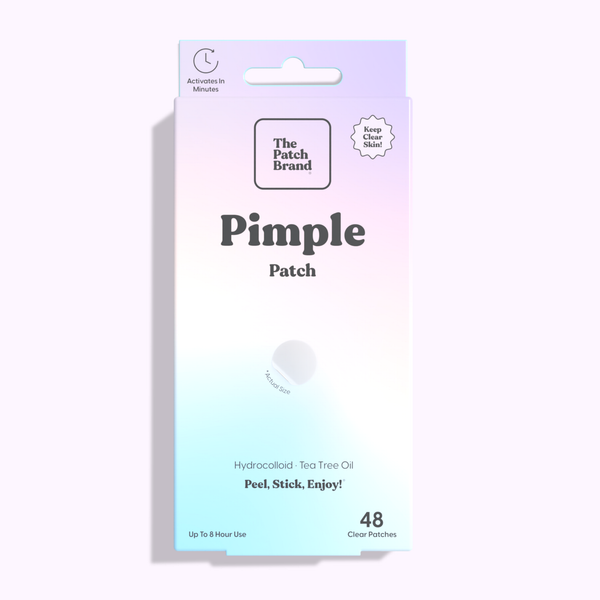Vitamin patches have emerged as a cutting-edge approach to enhance daily energy and nutrient intake. These
transdermal patches are designed to deliver essential vitamins and other energy-boosting substances directly through the skin, offering a convenient alternative to traditional oral supplements. As we explore this innovative health solution, we'll also emphasize the importance of maintaining a balanced diet rich in fruits, vegetables, grains, proteins, and dairy—or suitable alternatives—to ensure your body receives all the necessary nutrients for optimal function.
Vitamin Patches
These patches deliver a small amount of caffeine or other energy-boosting ingredients through the skin. Vitamin patches are becoming increasingly popular as a way to
boost energy levels. They are easy to use and offer a convenient way to get the necessary vitamins and nutrients. Apply a patch to a clean, dry skin area, and you're good to go! Whether you're looking for an energy boost or an extra shot of vitamins, vitamin patches can help you get the nutrients you need. Various vitamin patches are available, so you can choose the one that best meets your needs.
Maintain a Balanced Diet
Maintaining a balanced diet is crucial for overall health and wellness. It ensures that your body gets all the essential nutrients it needs to function optimally. Here’s a closer look at what a balanced diet should include:
-
Fruits: Consuming a variety of fruits provides your body with a range of important vitamins and minerals. Fruits are rich in antioxidants, which protect the body from oxidative stress and may reduce the risk of many diseases. Including fruits like berries, oranges, and apples in your daily diet can help boost your immune system, improve your skin health, and contribute to overall vitality.
-
Vegetables: Vegetables are fundamental for a balanced diet due to their high levels of dietary fiber, vitamins, and minerals, and low-calorie content. Regular consumption of a diverse range of vegetables, including leafy greens like spinach and kale, as well as cruciferous vegetables like broccoli and Brussels sprouts, supports digestive health, lowers the risk of heart disease, and helps maintain a healthy weight.
-
Grains: Grains are a great source of energy and play a critical role in a balanced diet. They provide essential carbohydrates, the body's main energy source, along with fiber, B vitamins, and various minerals. Incorporating whole grains such as brown rice, quinoa, and whole wheat bread into meals contributes to heart health and helps maintain steady blood sugar levels.
-
Protein: Protein is crucial for building and repairing tissues and is a building block for bones, muscles, cartilage, skin, and blood. A balanced diet should include a variety of protein sources to cover the spectrum of essential amino acids. This can include animal sources like meat and fish, and plant sources such as beans, nuts, and tofu, which also offer additional health benefits like fiber.
-
Dairy: Dairy products provide calcium, vitamin D, and other essential nutrients that support bone health. Including milk, cheese, and yogurt in your diet can help improve bone density and overall skeletal strength. For those who are lactose intolerant or choose to avoid dairy for other reasons, fortified plant-based alternatives like almond milk or soy yogurt are beneficial substitutes.
A balanced diet incorporates a variety of food types, each contributing uniquely to your health. This variety not only ensures that you are receiving a wide range of nutrients needed for your body’s functions but also helps to make meals more enjoyable and satisfying. By adhering to these guidelines, you can enhance your well-being and protect against numerous health issues.
Get Enough Sleep
Many individuals underestimate the critical role sleep plays in overall health, often considering it less vital than diet or exercise. However, sleep is an essential component of good health, just as important as eating well and staying active. While some may claim to function adequately on just a few hours of sleep, the reality is that inadequate sleep can have detrimental effects on the body and mind. During sleep, the body undergoes various repair processes that are crucial for physical health. This includes the synthesis of proteins, tissue growth, and hormone regulation, which help repair muscle and other tissues damaged during the day. Lack of sufficient sleep disrupts these processes, leading to slower recovery from physical activities and increasing vulnerability to injuries. Furthermore, sleep is vital for cognitive function; it consolidates memories and helps the brain process new information received during the day. Without enough sleep, one's cognitive abilities, including concentration, decision-making, and problem-solving skills, are impaired, which can negatively impact productivity and overall quality of life.
A well-rested body can fight off infections more efficiently. During sleep, the production of cytokines, a type of protein that targets infection and inflammation, effectively creating an immune response, is increased. In contrast, sleep deprivation leads to decreased production of these proteins and antibodies, making the body more susceptible to illnesses. Chronic sleep deficiency has been linked to a higher risk of various health issues. Here’s a detailed look at how insufficient sleep affects various aspects of health:
-
Weight Gain: When you don't get enough sleep, your body’s balance of appetite-regulating hormones, such as ghrelin and leptin, is disrupted. Ghrelin, which signals hunger, increases, while leptin, which tells the brain it has had enough food, decreases. This imbalance often leads to increased hunger and caloric intake, promoting weight gain.
-
High Blood Pressure: Adequate sleep is vital for maintaining cardiovascular health. During sleep, the body’s blood pressure naturally lowers, giving the heart and blood vessels a rest. Lack of sleep keeps the body on high alert, causing an increase in stress hormones and forcing the heart to work harder, which elevates blood pressure.
-
Depression: There is a strong link between sleep quality and mental health. Insufficient sleep affects the brain's neurotransmitters and stress hormones, which can disrupt emotional regulation and increase the risk of depression. Good sleep hygiene leads to better mental and emotional resilience, reducing susceptibility to depression.
Getting enough sleep is essential for maintaining good health and preventing the negative effects of sleep deprivation. By focusing on good sleep hygiene and ensuring regular, uninterrupted sleep, one can avoid these health issues and promote overall well-being. This approach is not only about increasing the number of hours spent asleep but also about improving the quality of sleep to enjoy its full restorative benefits.
A few simple changes to your daily routine can make a big difference. For example, try to go to bed and wake up regularly each day, limit caffeine intake in the afternoon and evening, and create a relaxing bedtime ritual such as reading or taking a warm bath. By making sleep a priority, you'll be on your way to feeling your best.
Exercise Regularly
Exercise is a cornerstone of good health, offering various benefits that extend well beyond the physical domain. Regular physical activity is essential for maintaining and improving cardiovascular health by strengthening the heart muscle, enhancing blood circulation, and increasing the oxygen supply to your cells. This improved efficiency reduces the burden on your heart and decreases the risk of heart disease. Additionally, exercise aids in managing blood pressure and cholesterol levels, which are critical factors in preventing cardiovascular complications. Understanding the specific advantages of each exercise type can help individuals tailor their fitness routines to meet personal health goals and preferences. Below are key benefits associated with different types of exercises:
-
Weightlifting: Weightlifting is not merely about building muscle mass; it plays a critical role in enhancing bone density, which is vital for structural health and aging. Regular weightlifting can significantly reduce the risk of osteoporosis by stimulating bone growth and increasing bone strength. This type of exercise also boosts metabolic rate, which can aid in weight management. By increasing muscle strength and endurance, weightlifting not only improves daily functional activities but also enhances athletic performance.
-
Aerobic Exercises: Aerobic exercises such as running, cycling, and walking are fundamental for improving cardiovascular health. These activities help in strengthening the heart and lungs, increasing circulation, and lowering blood pressure. Regular aerobic exercise also boosts stamina and vitality, enabling individuals to perform daily tasks more efficiently and with less fatigue. The psychological benefits include reduced anxiety, depression, and stress, making aerobic activities a holistic approach to maintaining both physical and mental health.
-
Swimming: Swimming is a highly effective full-body workout that enhances cardiovascular health and builds endurance, all while minimizing stress on the body's joints. This makes it an ideal exercise for people with arthritis or those recovering from injury. Swimming improves muscle tone and strength across various muscle groups, including the shoulders, arms, back, and legs. Additionally, it is an excellent way to improve lung capacity and efficiency, which is beneficial not just for athletes but for individuals seeking to improve their overall health.
-
Pilates: Pilates is a low-impact exercise that focuses on core strength, flexibility, posture, and balance. Regular practice not only leads to improved muscle endurance in the core muscles—such as those in the abdomen, lower back, hips, and buttocks—but also contributes to better overall body alignment and reduced risk of injury. The mental health benefits of Pilates include enhanced focus and concentration, decreased anxiety, and stress relief. Pilates is suitable for individuals of all fitness levels and can be adapted to increase difficulty as strength and flexibility improve.
-
High-Intensity Interval Training (HIIT): HIIT is characterized by short bursts of intense activity alternated with periods of lower intensity or rest, making it a highly efficient form of exercise that can fit into a busy schedule. It effectively increases heart rate and metabolism, leading to high-calorie burn and fat loss. HIIT also has cardiovascular benefits, improving heart health and endurance. Moreover, the variability in exercise type and intensity can help maintain motivation and prevent boredom, which is often a barrier to consistent exercise.
-
Dance: Dance combines physical activity with artistic expression, making it a unique and enjoyable way to improve physical fitness and mental health. It offers a cardiovascular workout, increases balance and flexibility, and strengthens various muscle groups. Additionally, dancing has a social aspect, providing opportunities to meet new people and engage in a supportive community. The mental health benefits are significant, including stress reduction, increased serotonin levels, and improved mood and cognitive function, which are important for overall well-being.
Understanding the specific benefits of each type of exercise can empower individuals to make informed choices about their physical activity routines, ensuring a balanced approach to fitness that promotes long-term health and vitality. Through a comprehensive fitness regimen that includes a variety of exercise forms, individuals can enjoy enhanced physical and mental health, better quality of life, and increased longevity.
Take Breaks
Many people believe that the best way to increase productivity at work is to power through and take as few breaks as possible. However, this approach can lead to increased stress and fatigue levels, which can negatively impact productivity and quality of work. Instead, taking regular breaks during the workday is important for moving around and stretching.
Moving around will help improve circulation and prevent stiffness, both of which can lead to increased focus and concentration levels. In addition, taking a few minutes to step away from your desk will also help clear your mind and allow you to return to your work with fresh eyes. So next time you feel your energy levels flagging, try getting up and moving around for a few minutes instead of reaching for another cup of coffee. Your body (and your work) will thank you for it.
Avoid Caffeine and Alcohol in Excess.
To maintain optimal health and well-being, it's essential to moderate the intake of substances like caffeine and alcohol. Both can offer benefits when used judiciously, but their excessive consumption can lead to significant health problems. Below are key points to consider:
-
Caffeine: A stimulant found in coffee, tea, and many soft drinks, caffeine can boost alertness and energy levels temporarily. However, when consumed in large quantities, it may lead to negative effects such as anxiety, insomnia, and restlessness. Overconsumption can disrupt sleep patterns and increase heart rate, making it difficult to relax and maintain a stable mood. Prolonged excessive use might also lead to dependency, requiring greater amounts for the same stimulant effect, which perpetuates the cycle of overuse.
-
Alcohol: Often consumed for its relaxing effects and social lubricant properties, alcohol in moderation can be part of social rituals without significant harm. However, excessive drinking can lead to severe consequences, including dehydration, impaired judgment, and slowed reaction times. It can affect liver function, and brain health, and increase the risk of accidents and chronic diseases. Long-term overuse can lead to alcohol dependence, where the body requires alcohol to function normally, complicating efforts to reduce intake.
While caffeine and alcohol can be enjoyed in moderation without significant health risks, controlling their consumption is key to preventing the array of complications associated with their excess. By staying informed and vigilant about the amounts consumed, individuals can enjoy the benefits of these substances without falling into unhealthy patterns of overuse.

While innovative solutions like vitamin patches offer a novel and convenient way to supplement your nutrient intake, they should complement, not replace, the
fundamentals of a healthy lifestyle. Maintaining a balanced diet, ensuring adequate sleep, engaging in regular exercise, taking necessary breaks, and moderating the intake of stimulants like caffeine and alcohol are essential components of overall wellness. These elements work synergistically to fortify your body's defenses, enhance your mental and physical performance, and contribute to long-term health and vitality. As you integrate these practices into your daily life, remember that the goal is not perfection but a balanced approach that promotes sustainability and enjoyment of life. Embrace these principles with a mindset of self-care and continuous improvement, and watch as they transform your health and well-being in profound ways.



